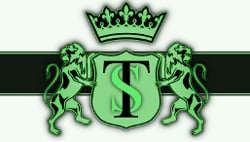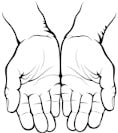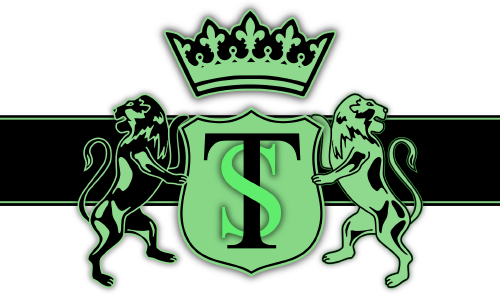| National Factbook |
| Flag: |

|
| Nation Name: |
Anarres |
| Leader Name: |
Ishmael |
| Currency: |

Nothing |
| National Animal: |

Rabbit |
| History: |
Originally, Anarres had no permanent settlements, but was only exploited by Urrasian miners on a temporary basis for mineral resources. However, approximately 200 years ago, there was a major anarcho-syndicalist rebellion on Urras led by a visionary named Odo. In order to forestall an anarcho-syndicalist rebellion, the major Urrasti states gave the revolutionaries the right to live on Anarres, along with a guarantee of non-interference.
For more information, see the wiki: http://politicsandwar.wikia.com/wiki/Anarres |
| Geography |
| Continent: |
Australia |
| Land Area: |
533,496.21 sq. km |
| Terrain: |
Urras and Anarres form a twin planet system, and together they orbit the star Tau Ceti (12 light-years from Earth). Urras, the larger body, has two main continents and several large oceans. The larger of the continents is home to the two nation-states of A-Io and Thu. Both nations are developed industrial societies but A-Io is a capitalist parliamentary republic while Thu is a totalitarian socialist state. On the second continent is the unstable and economically underdeveloped state of Benbili.
Anarres is the smaller of the habitable planets in the Tau Ceti system. It is essentially a large moon of Urras. Anarres is mainly covered by land, but has two large separated seas, each with their own distinct fish species. Aside from the Southwest, which is dotted with lines of hills running north to south across the landscape, Anarres has very flat terrain. Its unstable tectonic plates cause frequent earthquakes.
Map: https://eintrittverboten.files.wordpress.com/2013/02/anarres_small_eq_2.png |
| Highest Peak: |
Drum Mountain,
1,500 meters
|
| Lowest Valley: |
Grand Valley,
1 meters
|
| Climate: |
Anarres has two relatively fertile areas - near its capital Abbenay and near the coasts. Apart from these areas, the planet is mostly dust covered. The southwest in particular is very dry, as lacks any large body of water. The far south is near the polar ice cap and has large marshes in the summer. Nearer the equator, shallow alkaline lakes in vast salt pans dominate the landscape. The major cities are situated in the north and along the coasts. Only one major species of plant exists that is native to the planet. Other than fish, the planet has no native higher life forms. |
| People & Society |
| Population: |
21,394,839 people |
| Demonym: |
Anarresti |
| Demonym Plural: |
Anarresti |
| Ethnic Groups: |
- 100.0% |
| Languages: |
Pravic - 100.0% |
| Religions: |
Atheism - 100.0% |
| Health |
| Life Expectancy: |
76 years |
| Obesity: |
0% |
| Alcohol Users: |
0% |
| Tobacco Users: |
0% |
| Cannabis Users: |
0% |
| Hard Drug Users: |
0% |
| Economy |
| Description: |
The Anarrian settlers have fitted themselves with care into its narrow ecology. They cultivate enough crops to feed themselves using mainly organic wastes for fertiliser. But there is no room for free-riders. There are no surplus plants to feed herbivores and no herbivores to feed carnivores. The only non-marine animals on the planet are the settlers themselves. There are no insects to fecundate flowering plants; the imported fruit trees are all hand-fertilised.
Anarres is crisscrossed by a patchwork quilt of small urban centres with peripheral settlements. Each settlement follows the principle of an organic economy, aiming to survive as much as possible upon local resources - the water, wind, and soil in its vicinity. When this is not enough, resources move between locales upon need. There are no borders on Anarres, nor local identities; individuals can and constantly do move between settlements.
The settlers brought with them values that helped them survive in Anarres's limited biosphere. Mutual aid through sharing and giving are the organising social principles. There is no private property on Anarres. People have, they do not own and resources are given freely to those in need. There are no private houses, but instead, people live in dormitories with common rooms that house four or five each. There are also single rooms for couples or families that prefer privacy. Large dining commons are organised by each dormitory or run by worker cooperatives, and professional associations for their workers. The settlements are build with plenty of open public spaces and playgrounds. The little water available on this dry world is shared in public baths, where people meet and socialise daily. People move using electric trains and small buses. There are plenty of bicycles and a few cars that are shared by all citizens. Traveling takes days, and so does communication by post. Manufacturing workshops are located in the towns, their doors open to the main squares of the cities. |
| Average Yearly Income: |
$161.64 |
| Gross Domestic Product (GDP): |
$55,322,364,172.00 |
| GDP per Capita: |
$2,585.78 |
| Gross National Income (GNI): |
$47,937,337,415.00 |
| Industries: |
Production is organised in voluntary cooperatives and associations. Each individual has the freedom to associate with or start her own productive enterprise. There is no profit to be made or property to be capitalised and, hence, no incentive to expand beyond what gives everyday satisfaction and fulfilment. Every ten days, each Anarresi must devote one day to communal work. People work six to eight days of every ten, for four to seven hours a day. Working is voluntary, but almost everyone works, as there is little else to do and strong contempt for those who don't. A central computer matches workers' preferences for job placement with the needs of different cooperatives. People specialize, developing their own skills, but also contribute regularly to common tasks of cleaning, building, and maintaining public infrastructure. Every four years, each Anarresi has to spend six months reforesting the desert or accomplishing some other major public work. The basic needs |
| Military |
| History: |
Anarres has no military or police. What then, holds it all together? No one threatens to invade Anarres, as there is nothing to gain and no one wants to live there. There is no property and so, there is no theft. While there are no direct punishments for anti-social behavior, there are plenty of indirect punishments and sanctions. A strong communal ethic and set of norms keeps everyone in line. Those who free-ride and "egoise" or who wish to own things are ostracised from the community. |
| Soldiers: |
0 |
| Tanks: |
43,250 |
| Aircraft: |
4,125 |
| Ships: |
0 |
| Missiles: |
2 |
| Nuclear Weapons: |
0 |
| Last Updated: 03/18/2021 10:04 am |



















